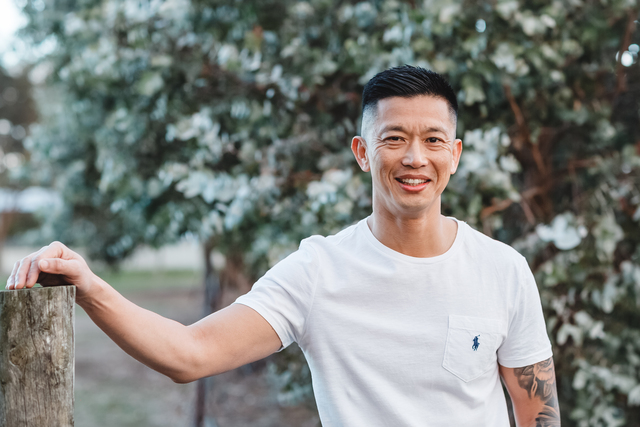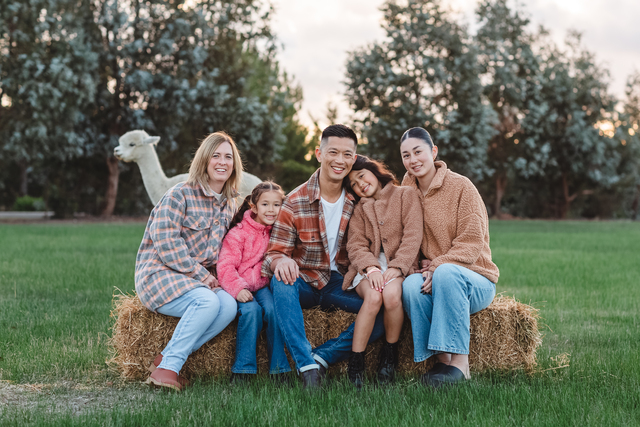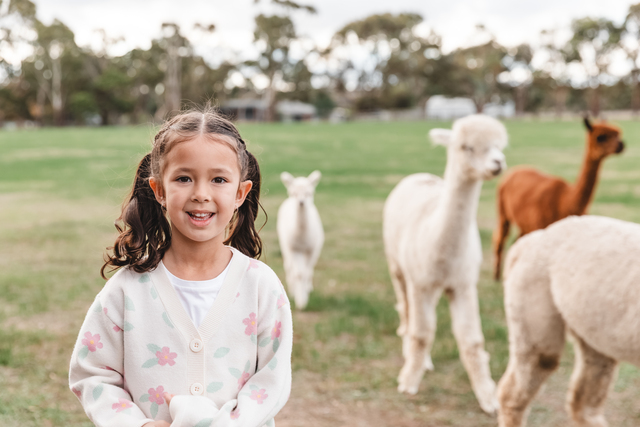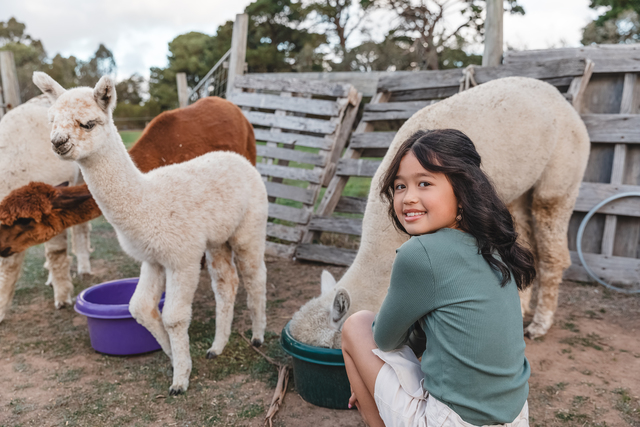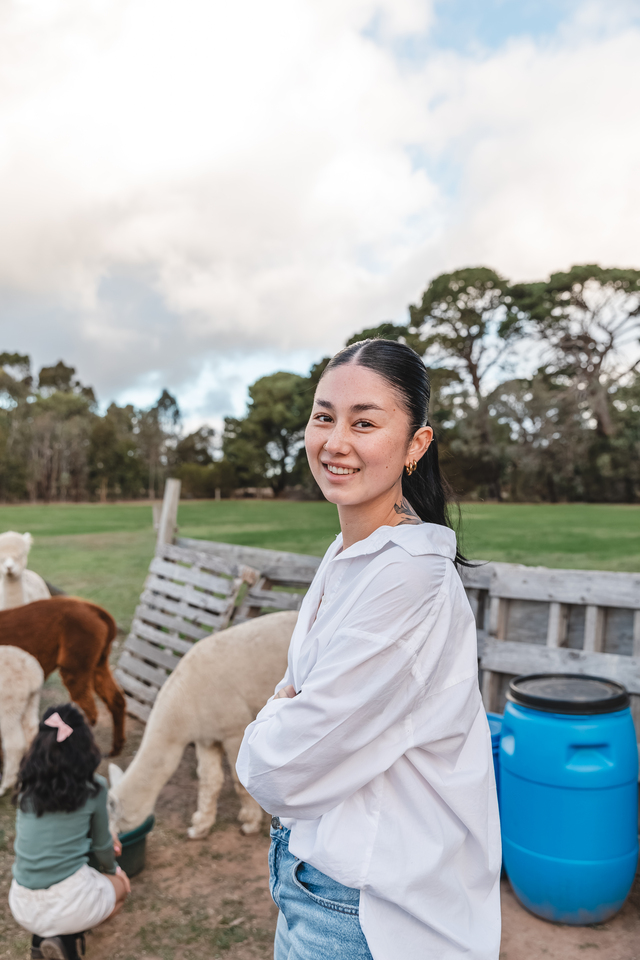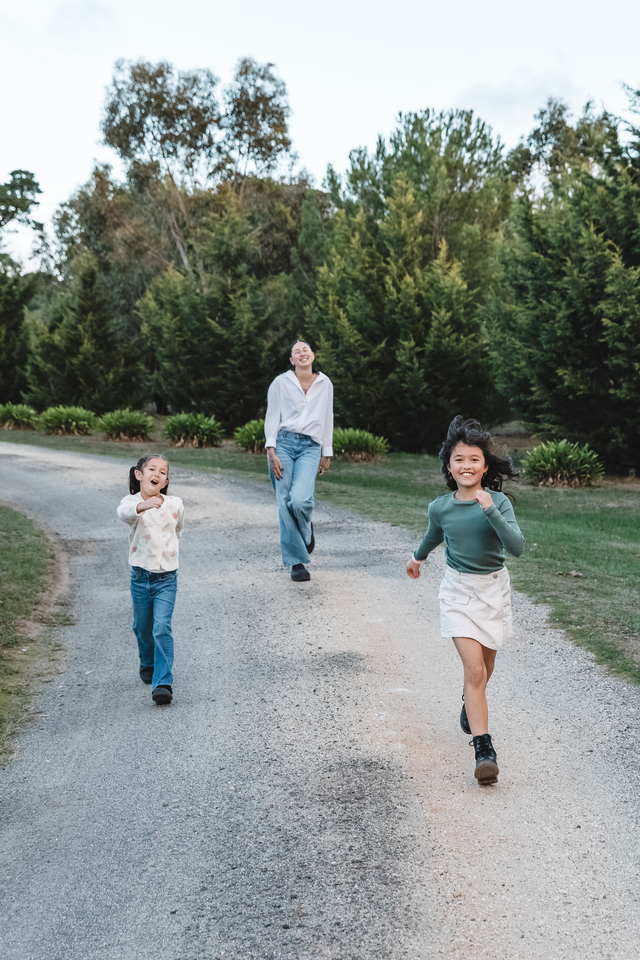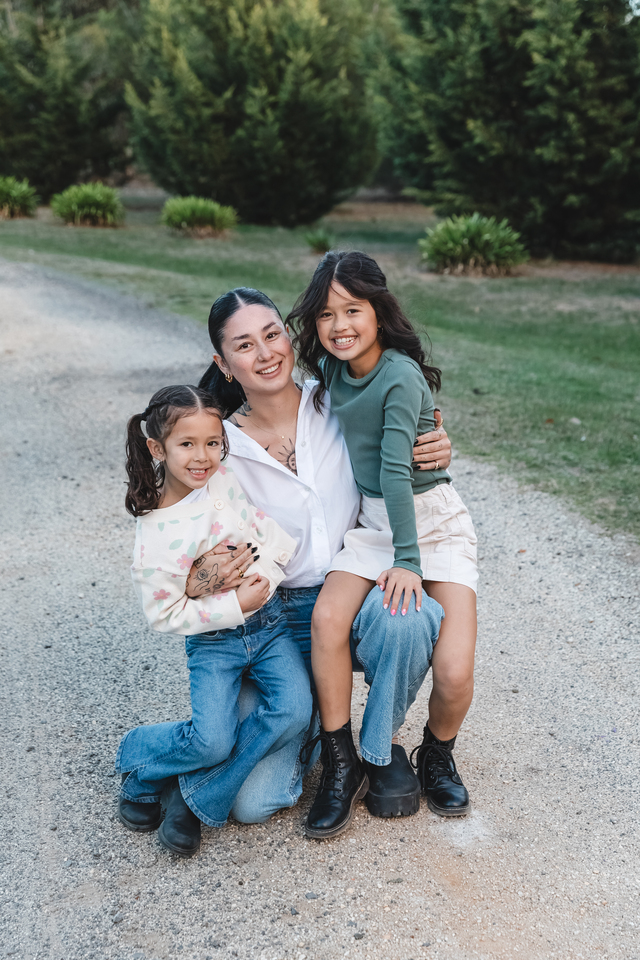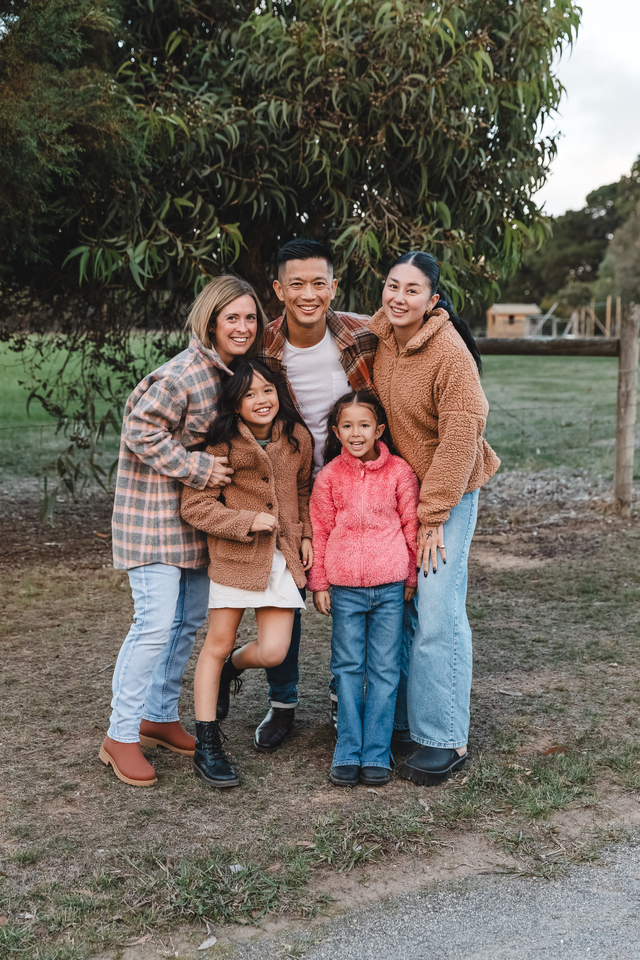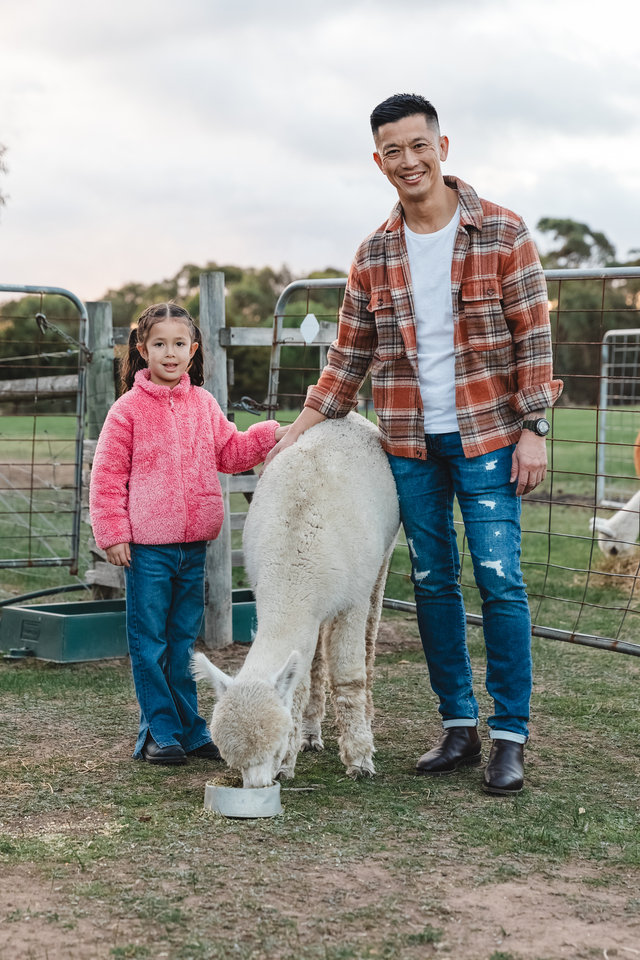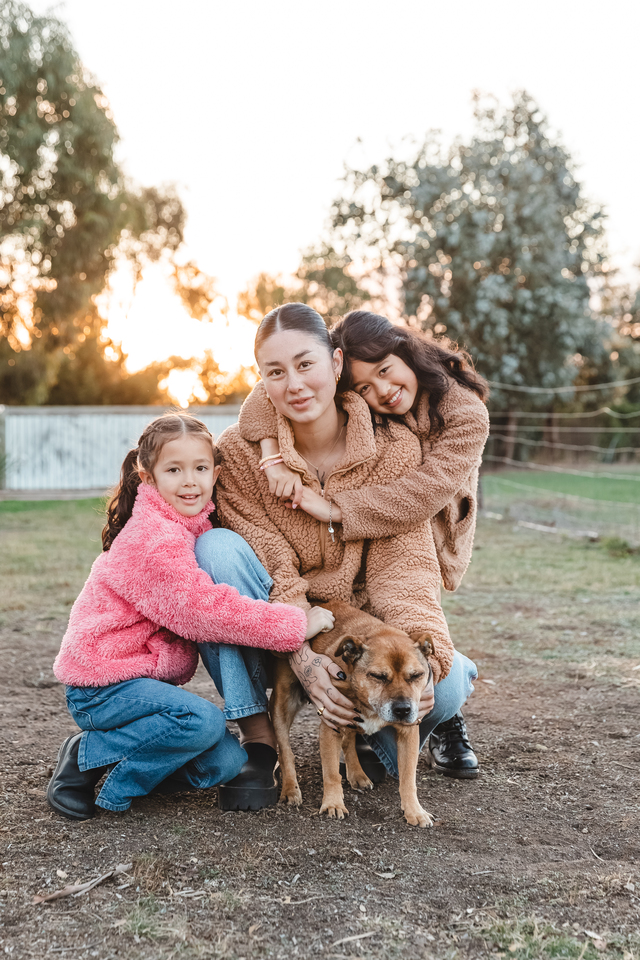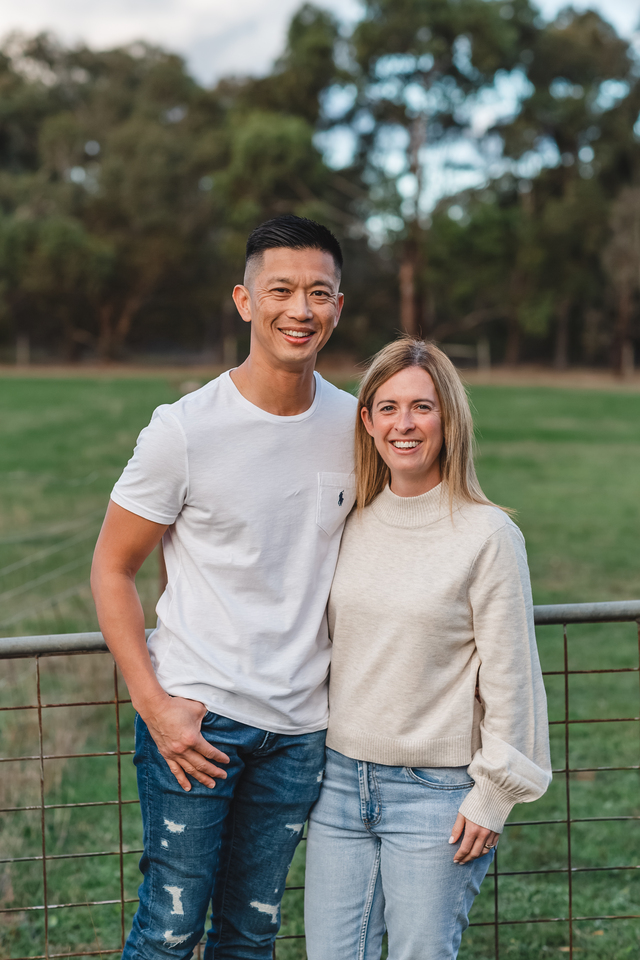Some people enter this world and it’s very clear they are here to make a difference.
Woon Ooi is not your everyday corporate dad or tradie dad.
His day job has seen him come face to face with some of the most confronting situations imaginable – including being on the front line in the Bourke Street massacre, hostage negotiations, going undercover to buy illicit drugs from traffickers, and coaxing people off the top of buildings and bridges.
Son of a minister, Woon’s adolescent backstory is every parent’s worst nightmare – gangs, expulsions, you name it!
But somehow, all the danger and rebellion of those formative years shaped him into an outstanding human with a drive and passion for helping others.
When you hear about his career you might picture a hardened, desensitised man.
But quite the contrary – Woon wears his heart on his sleeve, has an endless capacity for helping people in need, is an amazing father, a loyal and caring husband, and would give you the shirt off his back.
His lived experience has gifted him with a humble wisdom that is evident as soon as you talk to him.
*
Snapshot…
Name: Woon Ooi.
Age: 44.
Occupation: Executive leadership, communications and high-performance coach.
Names, ages, and three words to describe your wife and children:
Amy, 42 – Fiercely loyal, incredible mum, creative.
Nevadah, 23 – Loves her family, creative, kind, best present-giver.
Isla, 9 – Energetic, hyper-intelligent, born leader.
Lulu, 6 – Loves her mummy, kind, considerate, funny.
Go-to karaoke song: Throw Your Arms Around Me by Hunters and Collectors.
A movie you love: Warrior (2011 film) directed by Gavin O’Connor. The final scene makes me cry every time.
An embarrassing moment: During a presentation on cyber security, I repeatedly used the term ‘FaceSpace’ (a combo of Myspace and Facebook). That’s how long ago that was!
Mantra: “Say yes and work it out later.”
A quote you love: “I destroy my enemies when I make them my friends.”
What superpower would you love to have and why? Photographic memory. People feel valued and heard when you remember their name and the conversations you had with them. It builds instant rapport and is so effective in creating genuine human connections.
What scares you? “I am not afraid of dying, only afraid of living a life that was not worth living.”
A life-changing moment: When I was 20 years old I was caught in a rip at Surfers’ Paradise on the Gold Coast. I went unconscious just before being rescued by lifeguards in a rescue boat. My best friend almost drowned trying to save me, but he never left my side. We are still best friends today.
Three people you’d love to have for a Sunday roast, living or passed: Chiune (Sempo) Sugihara, Jordan Peterson, and King Solomon.
*
Woon, can you give us a snapshot of life before babies? Childhood, school life, ambitions?
I had my first baby when I was 20 years old. She is 24 this year, so I was only a baby myself.
Life before babies was school, university, business college, and working part-time in a dim-sim factory and a restaurant.
I deferred my university studies, finished business college, and started at the Victoria Police Academy in 2001.
School life was tough. I was born in Malaysia and migrated to Australia in 1985.
We started life in a little town on the other side of Melbourne called Frankston.
I was the only Asian kid at Frankston Primary School and on my first day of school (in Prep), I
was beaten up so badly that I required stitches on the top of my head.
When I was 7, we moved to Geelong, and it wasn’t much better.
I was expelled from school in Grade 2 for defending myself. Shamefully, I became a bully myself.
When I was 10, I joined a gang and by the time I was 14, I was couch surfing and at times sleeping rough.
I had no ambitions; life was about survival. I was expelled from three high schools before managing to complete my VCE.
How did you meet your amazing wife, Amy, and what makes her so special?
I met Amy in 2004 at a volunteers’ training session which I was facilitating.
We hit it off straight away.
Her best quality is the superpower I wish I had. She can remember the finest detail about everyone, everything, and every conversation.
She makes everyone around her – even those she only met once – feel like the most important
person because she remembers everything they said, even if their encounter was years before.
Her ability to connect with people is very natural and yet supernatural.
Were you there for the birth of your babies? How was that experience?
I was there for the birth of all my babies! It was the most incredible experience.
Our best friend (a midwife) delivered our babies in a home birth setting.
She was with us before having kids, with us through pregnancy, birth of our kids, and is still a
significant part of our babies’ lives. Our girls call her Aunty Judy.
You’ve worked in fields that would terrify the average person. Can you give us a snapshot of your career highlights and lowlights? What inspired you to head into such a challenging field?
In 2000, I was studying at business college and Victoria Police was recruiting.
I applied for the Victoria Police and the full-time Army at the same time but decided to take the policing option.
My career was rather unusual. I was one of two Mandarin speaking officers at the time.
I graduated from the Academy and went to the City Patrol Group to complete a three-month posting in the city.
I completed my mandatory three-day traffic direction course, and on the fourth day I reported for duty at the section sergeant’s desk and he sent me to the senior sergeant’s office.
The senior sergeant said, “Don’t bother sitting down”, as he handed me a report.
I said, “What does secondment mean?”
He replied, “It means pack your bags, you’re out of here. There is a car outside waiting for you.”
I was taken to St Kilda Road Police Complex where I worked in the kidnapping unit for a number of months, listening to recorded phone conversations, listening devices, and conducting real-time surveillance.
After that I worked in plain clothes drug investigations, buying heroin from drug dealers on the streets.
I then spent three years in the Melbourne Sexual Offences and Child Abuse Unit. This is really where I began my journey and passion in looking into how people communicate to influence others.
My job was meeting complete strangers in their most vulnerable state and making a connection to elicit the best evidence that we could use to mount a strong case, ultimately seeking justice for the victims.
After three years I needed a change and became a specialist weapons instructor.
I learned how to use my voice to teach and train police officers, and how to use structure in language to achieve the highest possible training outcomes in the shortest amount of time.
I did that for three years before taking a promotion to the Police Academy as a senior instructor. There I developed programs, trained other trainers, and advised on a number of committees including the Coroners Court of Victoria.
In 2011 I joined the Critical Incident Response Team (CIRT), which became the best 11 years of my career.
After completing my basic operators’ course, I qualified as a Close Personal Protection operative, Siege Hostage Negotiator and eventually became a Tactical Commander.
I was involved in many critical incidents including the 2017 Bourke Street Massacre, which became the tipping point of many years of unprocessed emotions.
A year after the Bourke Street incident, I was diagnosed with PTSD and sent off work for seven months.
I was determined to ‘get well’, return to work, and leave on my own terms.
I did, and went on to perform duties at higher ranks for another five years.
As a CIRT operator, on a daily basis I encountered people in crisis and sometimes truly believing that day was their last on earth.
I had the incredible privilege of sitting in that final moment with them and helping them see that there were more days to come for them.
I joined Victoria Police to make a difference. I left Victoria Police for the same reason.
I now work with people in so many different contexts.
I work with high performing teams, CEOs and senior executives running large corporations with over 3500 employees.
They all want the same thing: to make a difference in this world, and leave a legacy.
The formula is the same. Help people become great communicators, teach them how to make genuine human connections, and lead people to positive outcomes.
Your work is something not many of us would be cut out for – what is the secret to staying calm in such high-pressure situations?
The mind is an incredible machine. It has limitless resources. Learning how to access those resources has changed my life.
The unconscious mind processes a lot more than our conscious mind can.
The mind also loves to be in control. It is also a pattern recognition machine. If it encounters a situation that it doesn’t recognise it will process the situation as a threat.
A threat response is typically a flight, fight or freeze response. However, it is difficult to predict your response unless you have developed a pattern of response.
I do think being prepared is advantageous and responsible, especially if you are in charge of little lives.
It also puts you back in the driver’s seat and puts your mind at ease, because you have a plan. A simple IF/THEN exercise will help greatly.
You can say to your child, “If you get lost, wait at the information booth and I will find you there.”
During a pressure situation, ‘box breathing’ is very effective:
Look at a square object. Count to four seconds while breathing in and following the top edge of the square object with your eyes. Now hold for four seconds while following the right edge of the
square object down one side. Now breathe out for four seconds while following the bottom edge of the square object. Now hold for four seconds while following the left edge of the square object up the other side.
Do this for two minutes and you will feel amazing.
You must consciously think about breathing (that way), which means you have to activate the part of your brain which is responsible for thinking, problem solving, and regulating your emotions.
In the negotiator world, we call this ‘brain online’.
Another way to prevent or reduce a survival stress response is to practise gratitude, empathy and mindfulness (eg box breathing) every day.
Research has shown that this practice will reduce activity in the part of your brain that triggers your survival stress responses.
That’s such great advice! I know that in your ‘spare time’ you are also heavily involved in charity work. Can you tell us about the work you do in that space?
In support of the Australian Consulate, I went over to Bali in 2014 to set up a Safety Response Program to help young Australians to stay safe while partying in Bali, particularly during the ‘schoolies’ season.
Around that time, methanol poisoning was on the rise, and we assisted in airlifting a number of young people to Australia for emergency medical treatment.
While I was there, I met a guy from Australia (Geoff) that was in Bali working with disadvantaged communities, teaching English and numeracy.
In 2015, my Brazilian Jiu Jitsu coach and I ran a 33.5-hour continuous grappling class, breaking the world record and raising $10,000 to start a BJJ academy in Bali, which Geoff now runs.
That BJJ academy is now a school with two campuses teaching over 250 students and reaching over 500 members from disadvantaged communities in Bali who are not able to access education and services.
We also provide food aid, which began during lockdowns, and we now collaborate with hotel associations to distribute food that is close to expiry date.
How would you describe your parenting style?
I would describe my parenting style as ‘doing the best I can with the resources I have’.
I believe that is true for every parent.
I also believe that ‘every person has the resources within them to succeed and achieve whatever outcomes they desire’.
It is also vitally important to be ‘kind and gentle to yourself’ when you don’t respond in a
way that you are proud of, because ‘there is no failure, only feedback’.
Pick yourself up and try again.
What have you found to be the hardest thing about parenting?
The hardest thing about parenting is probably the same for most people – the consistency and persistence that is required, because the rewards are so far into the future that it is hard to stay focused and motivated on doing the best you can now.
Something I discovered in negotiation that is incredibly powerful is ‘rapport building’ with your kids.
In fact, it is vitally important. Without rapport, it is difficult, if not impossible to lead or influence anyone, including children.
How often do you tell your partner you love them? Imagine if you said to them, “I told you that I love you on our wedding day. If that changes, I will let you know.”
Kids are the same. We need to seek to build rapport with our kids all the time, especially if you want them to learn a lesson.
A few weeks ago, my nine-year-old Isla was very disrespectful towards Amy at a netball match.
Amy had the wisdom and patience to let it go at the time, and then asked me to address the issue in the morning.
The following morning, Isla came into our room (at the same time), said good morning (as she normally does) and asked to go downstairs to watch TV (which is her normal routine).
However, on this particular morning, I told her to hop in bed with me.
Now, this is out of routine for her, so I could immediately anticipate that her survival stress response was being activated. Even a child needs to feel in control and of course, the need to
be right.
I spent five minutes getting into rapport with her, to bring her survival stress response down and to bring her ‘brain online’, because I was about to discuss something very important.
Something that would mould her character and make her a better human being, and become more socialised, which is, after all, our primary objective as parents.
Once her brain was ‘online’ she was able to regulate her mood, receive feedback without being defensive, rationalise, identify what made her angry, and be disrespectful to her mother (the night before), problem solve and develop solutions herself on how to manage her emotions more constructively in the future.
The alternative would have been to cause an argument with her that would have lasted all day, and maybe into the next day.
Negotiating with my kids requires me to focus on the objective. The opposite is turning the situation into a contest.
In a contest, there is a winner and a loser, and nobody likes to lose, and you will not win
a contest (especially with your kids) by presenting more rational and convincing points.
If you focus on the objective (which is to socialise your child and turn them into productive members of society) then there is nothing that child can say to you to bait you into a contest.
The best thing about family is that you love each other no matter what.
You aren’t going anywhere, which means you get to fail and try again as many times as you need.
Just remember to be kind and gentle to yourself and ‘there is no failure, only
feedback’.
Gosh, Woon, you have so much wisdom to share with our readers. If you had one sign-off message, what would that be?
Something I had to learn the hard way and now I tell myself daily: “Be really kind and gentle to yourself.”


